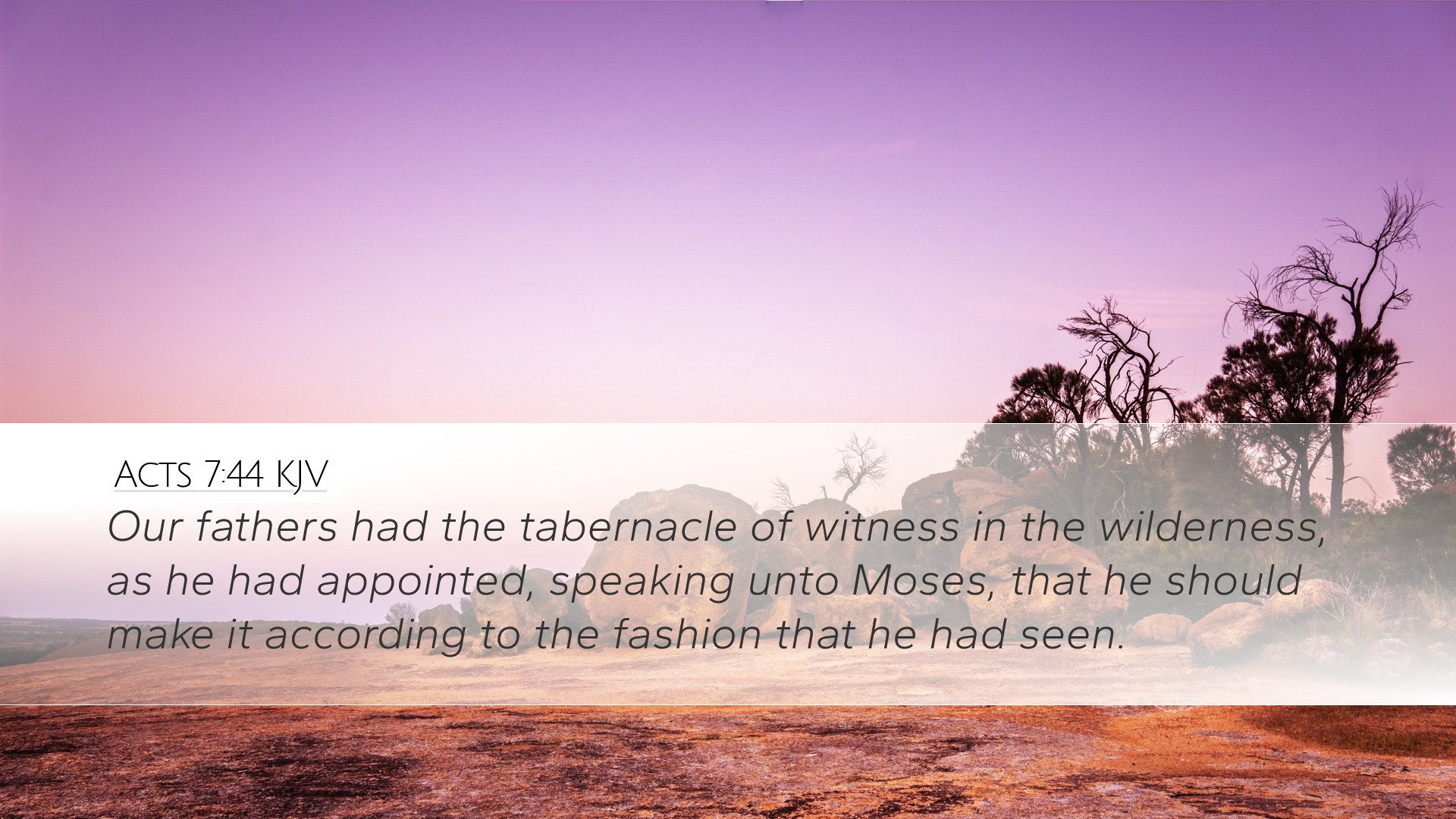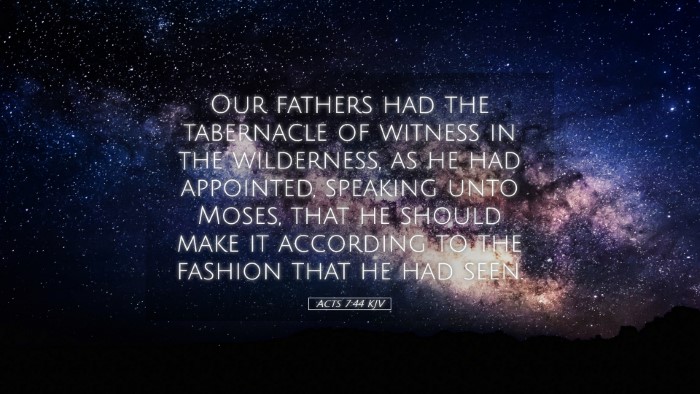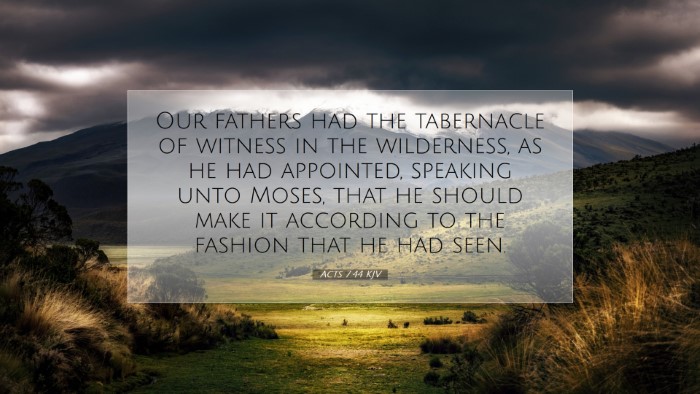Commentary on Acts 7:44
Acts 7:44 states: "Our fathers had the tabernacle of witness in the wilderness, as he had appointed, speaking unto Moses, that he should make it according to the fashion that he had seen." This verse is part of Stephen's defense before the Sanhedrin, where he recounts the history of Israel and highlights God's providential guidance in the establishment of religious practices.
Historical Context
In understanding Acts 7:44, it is essential to consider the historical background of the Jewish people and their journey from slavery in Egypt to the Promised Land. The tabernacle was a divine provision that allowed for God's presence to be amongst His people as they wandered in the wilderness.
The Significance of the Tabernacle
The tabernacle was not simply a physical structure; it represented God's covenant with Israel and His desire to dwell among them. Matthew Henry comments on this aspect, noting that the tabernacle was a "portable dwelling place of God," designed to facilitate worship and sacrifice, which were central to the Israelite community.
Divine Instruction and Design
The phrase "as he had appointed" underscores the importance of divine instruction in the construction of the tabernacle. Albert Barnes elaborates that God provided Moses with a specific pattern, emphasizing that worship must be conducted according to divine revelation rather than human invention.
The Role of Moses
Moses is presented as a key figure in this narrative, serving as the mediator between God and the Israelites. Adam Clarke observes that Moses not only received the blueprint for the tabernacle but also exemplified obedience to God's commands, operating under divine authority.
The "Wilderness" Experience
The wilderness serves as a metaphor for spiritual training and testing. Stephen references the wilderness journey to remind his audience that God’s presence was with them even during challenging times. This underscores the idea that faith is often cultivated in periods of trial, and it serves as a reminder that God remains present among His people, even in difficult circumstances.
Theological Implications
The implications of Acts 7:44 extend beyond historical recollection to theology.
- Transitional Phase: The tabernacle was a transitional phase to the eventual temple, which represented a more permanent dwelling of God among His people.
- Foreshadowing Christ: Many scholars, including Henry, assert that the tabernacle foreshadows Christ’s incarnation, representing how God Himself would dwell among humanity.
- Symbol of God’s Presence: The tabernacle exemplifies God's commitment to being near His people, reinforcing the concept that worship is vital to relational intimacy with God.
Lessons for Today
For pastors, students, theologians, and scholars, Acts 7:44 encourages a deeper understanding of worship and community:
- God’s Model for Worship: We must adhere to God’s design for worship, valuing the instruction found in Scripture and recognizing that worship is both an art and a command.
- Presence of God: It serves as a reminder that God is with His people, emphasizing the importance of community and gathering in worship.
- Obedience and Humility: Like Moses, we are called to demonstrate obedience and humility, trusting in God’s plans even when His directions may not align with our understanding.
Conclusion
Acts 7:44 encapsulates vital truths about God's desire to dwell among His people through the tabernacle, serving as a historical anchor that informs contemporary worship practices. Through the insights gleaned from respected commentaries, we are reminded of the importance of adhering to divine instruction, embracing community, and understanding the presence of God in our midst.


